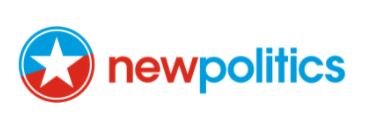Mike Nellis is the CEO and Founder of Authentic, an award-winning agency focused on running ethical digital fundraising and advertising programs for political campaigns. He has 16 years experience working in politics and a background in strategic communication, business, and marketing. @mikenellis
1) To what ethical standard should political communication be held? Where should political communication ethics be grounded?
I believe political practitioners like myself have a responsibility to treat our supporters and the American public with respect and dignity. Most of my career in politics has been focused on online fundraising where we have the ability to empower people to engage in our political process. That’s a good thing! But on both sides of the aisle, too many campaigns and consultants are using scare tactics to scam people out of their hard-earned money, which destroys trust in our political system.
We have to realize that what we say, how we say it, and what we do matters to people — especially when we’re asking them to make contributions to our campaign. The money we’re collecting from ordinary Americans is money that helps them put food on the table or take care of a loved one. We have a responsibility to make sure we’re building a meaningful connection between the campaigns and causes we’re working on and the people who trust us to help them engage in our system.
2) Why should someone in political communication behave ethically?
Maybe I’m naïve, but treating people with respect and dignity is just the right thing to do. It’s also one of the best ways to fix our broken political system. The truth is, politicians like Donald Trump have worked really hard to divide us in order to gain power, money, and influence. They’ve done it by lying, cheating, stealing, and preying on our anxieties as human-beings.
There are real differences in the direction Americans want to take our country, but I really do believe there’s more that unites us than divides us as a people. If political campaigns were operated more ethically and honestly, I think it would be a lot easier to bring people together to get things done on the issues that matter.
3) Can you give an example of ethical political communication? What can people point to and say “do more of that?”
There were so many great digital programs in the last election that tried to do this the right way. We ran the digital fundraising for John Hickenlooper and raised tens of millions of dollars online without ever scamming people of their money. In fact, almost every top-performing piece of content for us was rooted in John’s authentic voice and brand. It wasn’t all doom-and-gloom and all that. It was a really thoughtful program from the candidate on down. John would frequently look for little fun opportunities to show off this personality like shooting Facebook videos to supporters of him playing the banjo to ask for donations. It worked so well. We really proved in 2020 that you don’t have to scam people to raise money online.
4) Can you give an example of an ethical challenge or question you or political communication professionals in your field have faced or are likely to face?
Anybody working in digital politics is going to face campaign stakeholders pushing you to max out your fundraising numbers or get as much engagement as possible. It creates a race to the bottom for content and it often makes us forget about the basic dignity of the people reading our content. You have to be ready to push back and advocate for a better program. In the short-term it can be hard to convince people to do this in a better way, but so many campaigns — like Hickenlooper above or the Biden campaign last year — have proven you can run programs deeply rooted in content that is more uplifting and personal.
5) Can you give an example of an ethical challenge or question you or political communication professionals in your field have faced or are likely to face?
More than anything, figure out what you stand for and plant yourself as best you can. Politics can be such a zero-sum game. In fact, many people who work in this industry treat it like a role-playing game where the consequences barely matter to them. But if you know what you’re about and what you want to accomplish, especially as it pertains to your ethical framework, you can work backwards and make decisions that reflect what you want to happen. It takes time to develop. I have a very different view of myself and this industry and my work than I did 15 years ago. I’m sure that’ll be true in 15 years too. Keep at it. We need people who care about doing this the right way because we can’t leave the politics to the scammers and hacks.















